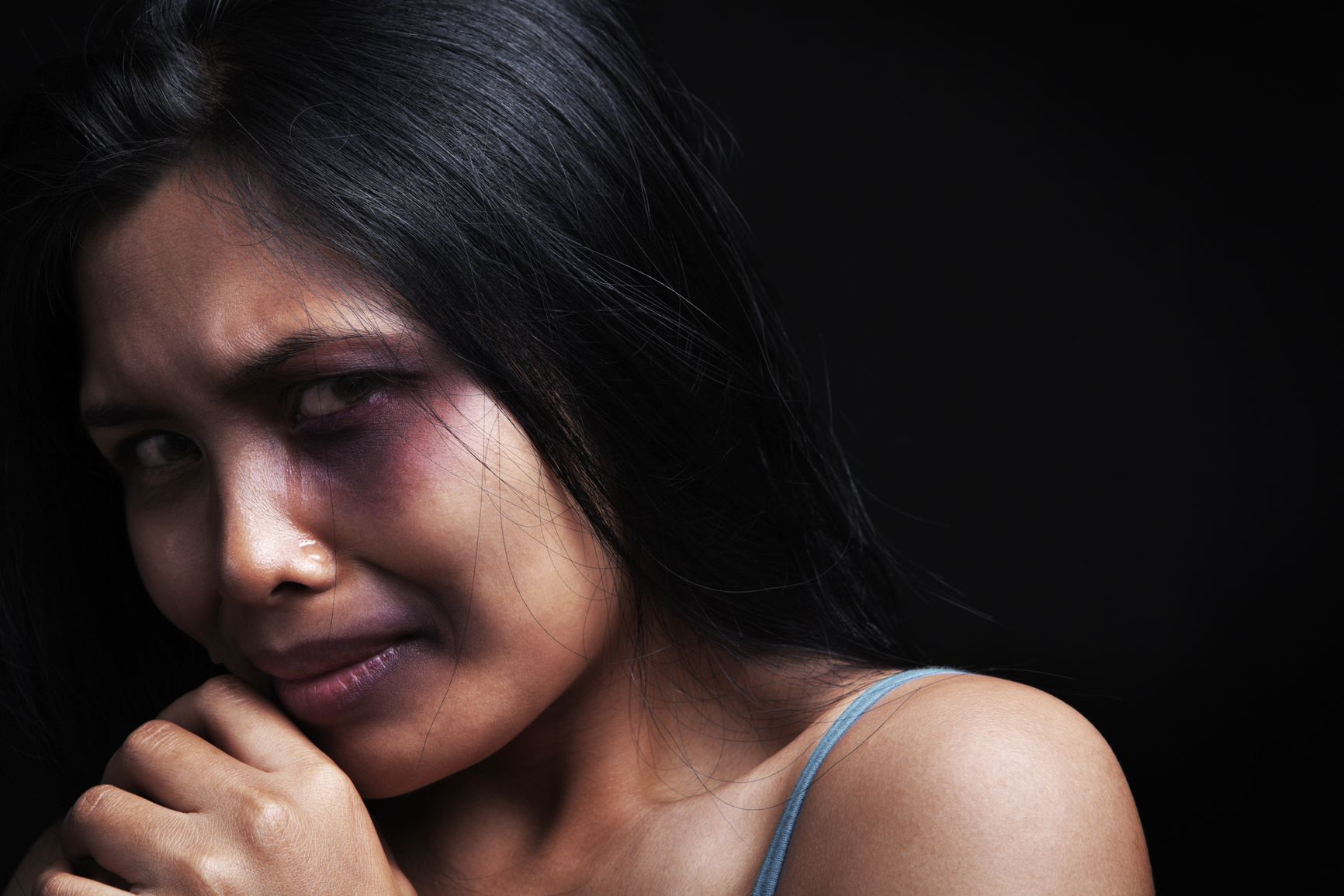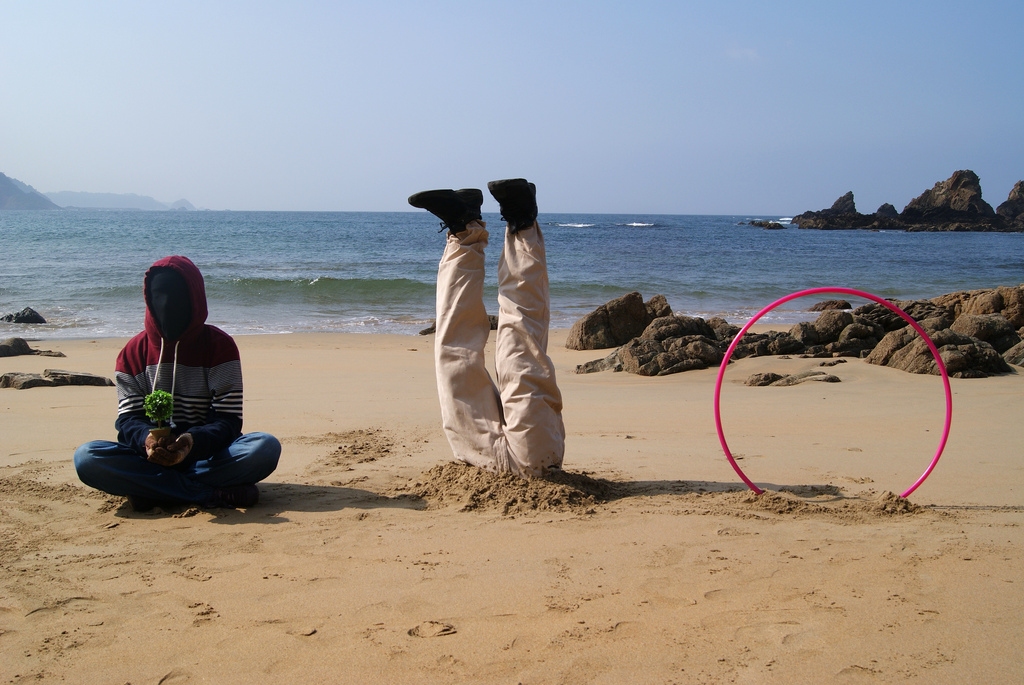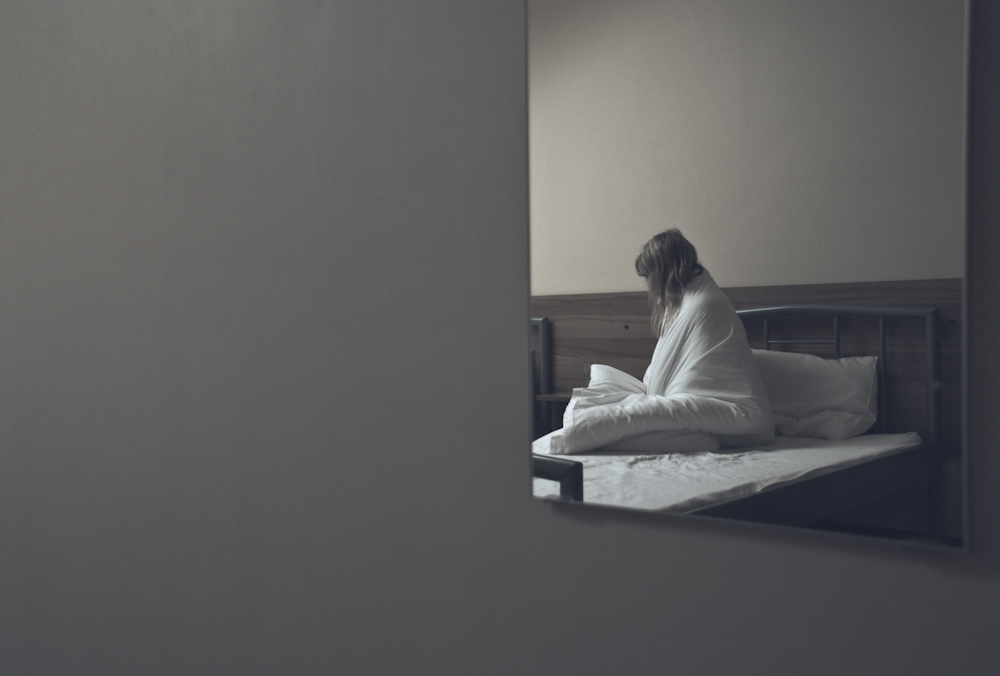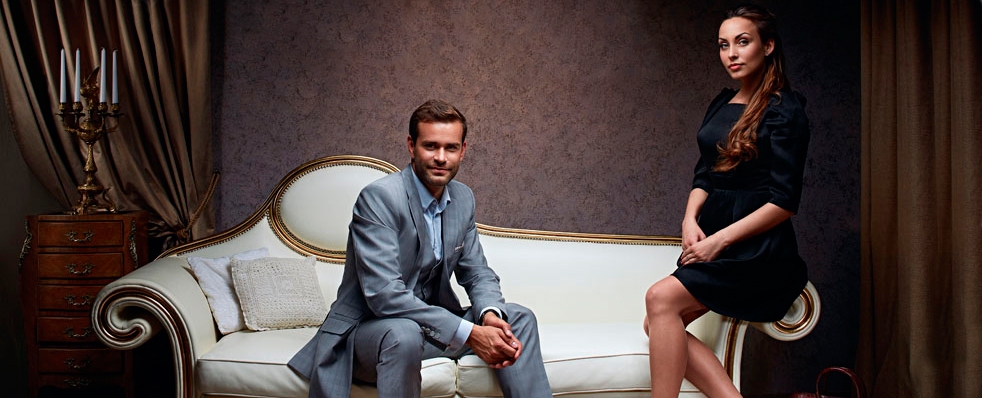Since 1981, all across the world, November 25th has been celebrated as the International Day for the Elimination of Violence against Women. This day was designated by the UN General Assembly in memory of the tragic event of 1961 – the murder of 3 political women activists in the Dominican Republic – the Mirabal sisters.
Olga Gorbunova, the head of the “Radislava” SO crisis center for women and children spoke about domestic violence, social stereotypes, journalism ethics and many other topics.
On stereotypes
Undoubtedly there is the stereotype that violence only happens in marginalized families and is connected with alcohol and drug abuse. I am deeply disturbed by the fact that the women who come to us also believe these stereotypes. We decided a long time ago that we will not be an organization that is only engaged in awareness-raising and educational work. Our main aim is very narrow and concrete – direct support to victims and survivors. And we harbor no illusion that at some point in time the situation will change. I found a research conducted on Belarusian proverbs from the period of the Grand Duchy of Lithuania – and here are some examples - “one who does not wash their hands and beats their wife, will not live a long life” – the situation always was and will be like this, as long as someone is benefiting from it. And the society is fine with this, because otherwise there would have been an outcry and people would have taken on the responsibility and started to reflect – what kind of people are we socially fostering and how.
A woman came to us for a consultation with clear signs of the fact that she has been subjected to various types of violence: her husband beat her, pressured her psychologically, put her down and engaged in marital rape. This particularly is considered to be a taboo topic: how can one rape their wife when this is her marital duty? He did this for a number of months, every night, sometimes in front of their children. And she said that all these years (of course until the nightmare of the last months) she was completely confident that they had a good marriage and ideal relations. She wholeheartedly felt this harmony. And I realized that there were tears streaming down my cheeks. And only after half a year, when she already started attending a self-help group for women, she remembered the first consultation and said: “I realized that something was wrong with me when I saw Olina’s tears”.
After this story I truly understood with what kind of problems women come to us. Women often call our helpline saying “I am constantly in a bad mood, I often feel downtrodden and I do not understand why this is happening”.
Minute by minute, with each new question a concrete story of a tragedy unfolds, when a person was simply deprived of their selfhood. The magnificence, individuality of a person, all the ambitions – everything was just erased. But at the same time, the woman does not even understand this, and just describes it in an abstract manner: “I am often feeling down, I lash out at my children, talk to me, what is happening to me”.
There are widespread myths in our society: if he beats you that means he loves you. My god, I thought that all this was left behind back in the Soviet Union, but in reality, even young women of 20, 25, 30 say this today. They say the same thing: if he gets jealous, harasses, controls you, that means he loves you. And you just sit there stunned: we are in the third millennium, in a media age, when we have such access to information. And these are not only women from the peripheral regions, who have less resources, who say this. Educated, young and really cool young women say the same things.
There is another myth that men are naturally prone to violence, cannot control themselves, that because of testosterone they have a psychological propensity towards aggression. But he is not beating her out on the street, or at work – there he can control himself. Yet he waits until they are alone, when the doors are closed. The men never do this when there are neighbours in sight. This situation is only further promoted by impunity. The person knows that they can do this and will not be punished for anything – and so they do it.
Many women tell that violence starts when for example they return from maternity leave and realize that they still harbor some life ambitions. They want some kind of self-sufficiency, independence, including financial independence. And it seems that there are certain ideas or myths stipulating that the man must be the breadwinner in the family, and the woman is the domestic guardian of the hearth. And this is also a critical moment for a couple, when the woman decides to go beyond the patriarchal limited framework: starts to earn money, comes late from work, and when she does come home, then is always behind the computer, working on some projects. And this could be people who are in a relationship, who are close in spirit, think alike, a young couple, and then an agreement could be reached: “If you think that I am going to be a housewife…” – “No, no, I do not think that you are going to be a housewife”. But when this does happen, then all the agreements break down.
There are many prejudices and each myth is spread with the intention of deferring responsibility – from the person who engages in violent behaviour onto the shoulders of the woman: what does a woman have to do in order to not get raped or beaten up?
On the Belarusian context
One client told that in their quite large Belarusian city, from which she came to our shelter, she is a good hairstylist. She says that “probably all the women residents of this town visited my salon”. And what do women do when they are sitting in a hair salon? They share their thoughts. And so she tells us:
“We have two types of women: happy and unhappy. Unhappy women are those whose husbands beat them, drink, do not give money, and overall are jerks in all respects. And happy women are those whose husbands drink, beat them, but give them spending money. In our city there is only this type of differentiation.
This happens everywhere. When women come from smaller cities, they tell even more horrible stories. We had a client who, before getting to our shelter, spent 3 nights in the forest. Her partner beat her up very badly. She does not even know how many concussions she has had because he forbade her from seeking medical attention. She came to us with completely red hair and we thought that she dyes it, but it turned out to be iodine. Her entire head had battery wounds, and her husband bought her entire packs of iodine and covered her head in it. She would rest for a couple of days and would then return to work. On the day that she ran away, he started bashing her knees in and she realized that she won’t even be able to work. This is an indicative criterion for Belarusian women: as long as they can walk, they will continue to cover up the situation. There is an entire array of reasons behind this.
But at that point she realized that she will just become a person with a permanent disability. So she got on the bicycle and was pedaling with one leg, because on the other leg her joint was bashed in. She couldn’t bike on the main road because he could have caught up with her by car. So she chose the unpassable forest routes.
She just literally slept in the forest for 3 nights. She was very scared because there could have been some animals and also the rain. This was a deciding point for her, when she said: “If I survive, I will never let anyone treat me this way again”.
When she came to our shelter, she told us that overall, this is how most of the people in the village live, and just nobody has so far left it behind like she has. Someone would constantly have a battered head, women walk around with bandages, some have troubles with their legs, someone perpetually has broken ribs – and all this is connected with cruel physical violence. But in small villages women are attached to the person who helps with maintaining the household. For them it is a question of survival: a woman who is alone, with all her injuries and traumas would simply not be able to pull through. And she is ready to live in such relationships for decades, because “he is the man, he can get wood, plow the field”. In other words, you buy the opportunity to survive and pay for it with your life. This is kind of how this is.
On principles
Our organization has a principle-based position – not to engage with abusers. Only I, as the head of the center, can communicate with them, my colleagues – never. For example, in courts we provide a certificate that the woman turned to us, so that she would have some kind of proof that something awful was happening in the family. Men would find out that the woman came to us, followed up and called us to tell that they were the ones who suffered from domestic violence.
Abusers have so many arguments in their defence. It is always very logical, with an emotive culmination: how hard it is for them, how the woman in question is really a nuisance to everyone. And you understand that when the police arrives to the scene, they would never believe the woman. Because she is usually in a middle of a breakdown, crying, etc. And the man stands there rationally explaining why this happened like this, that he beat her up, or didn’t beat her up, he was trying to “stop her”, he was trying to “get her to come back to her senses” and perhaps overdid it a bit. But overall, it was her own fault.
Because we are not an official state institution, we always take the position of believing every word. Everyone accuses us of being biased: in the courts, the prosecutor’s office, the police. When we go to the police station together with the women clients, everyone asks: “How do you know that this is true?”. And I reply: “I do not care”. I do not care how this person sees it from their perspective, from the perspective of her family, children. A person comes to me for services which are commonly looked down upon. Most of the time, women who come for their first meeting do not even look us in the eyes – this is the level of shame that they feel. And you understand how much of whatever strength this woman had left that she had to muster to come to our center. And I always tell: “If you think that it is prestigious to turn to us and people are just coming in in big crowds in order to take advantage of us, then you are gravely mistaken”.
At some point we decided that in this war (and there is no other word for me describe domestic violence, except for maybe terrorism) we are on one side of the barricades. We have specialized training, personal experience and we feel that we were meant to do this.
On upbringing
A lot can be said about the gendered trends in the upbringing of children, the way boys are raised and the way girls are raised, these fixed frames, when parents are scared to even buy a doll for a boy, because supposedly he will become an “effeminate homosexual something”. On facebook I saw a picture that said: “Why don’t you give your son a doll as a present – are you afraid that he will grow up to be a good father?”
Society is responsible for whom it fosters. Because all discriminatory practices start from an early age. You are a girl, and so this is what is appropriate for you, and for a boy, well that is what is appropriate. We do not encourage curiosity in children, and the desire to try things. Everyone immediately becomes very concerned when boys try out their mother’s clothes, when girls act like tomboys, climb trees and do not express an affinity for anything pink.
So then who is responsible for what happens to these boys and girls as they grow up in these rigid traditional frames? When they start to worry because they feel different, when they can and have to pretend for years, which is something common for all people who do not feel safe to come out in public.
This is a nightmare – you live a double life! Inside you have an entire immense world, but instead you put on a mask, go to work, meet your parents and tell them how grey and mundane your life is. In reality these double lives, double standards, if we consider the human psyche, are an unbearable load. There is a research which concluded that double standards facilitate the onset of schizophrenia, what’s more, this can happen at any age. Because a person cannot live this kind of life for a long time.
On otherness
Our society is not really ready for people who are different. Whether you have health problems or are a person who wants to dye their hair in bright colors. Whatever aspect you take: sexuality, sex, gender, health – the “other” is always in a very vulnerable position. And unfortunately, as practice shows, it is the people who are the closest who will be the first to attack. Due to fears, their own insecurities, cruel images and standards imposed by society.
When a person plans, or it accidentally happens that they cross socially accepted boundaries (regardless of whether this is expressed in their behaviour or lifestyle) – everyone becomes disoriented. They believe that in their vision of the world everything must be set up in a specific way, but this vision of the world is absolutely patriarchal and traditional.
And so when a woman realizes that she has her own plan for life, which is at odds with the plans of her partner, that is when the violence begins. This is very similar to what happens to LGBTQI people, because they also do not fit someone’s standards.
As a result, it turns out that this idea is universal – regardless of the sex, and regardless of who is the abuser: whether it is the parent or partner, a friend or someone else – it does not matter. The fact of otherness is all that matters.
I remember when the “Radislava” center opened its doors (this was around 12 years ago), we had a client who was beaten up in a commuter train by a man who thought that she is not woman, but a gay man. She told about the complete indifference of the people around who witnessed this. She was not alone in the train car, and it was a regular commuter train, but absolutely nobody came to her defence. The man was yelling out all kinds of absurdities and beating her, but nobody tried to help her. Neither her being seen as a woman nor as a gay man was considered as worthy of helping her. She came to us in shock – how was it possible that people who were next to her just continued to sit there reading their magazines about gardening: on the commuter train most people are on their way to their summer houses…For me this was the first experience of this kind, and I understand that people who come out to people who are close to them and as a result face aggression and lack of understanding, have nowhere to turn to, neither in Minsk, nor especially in other regions of Belarus. There is also no place to seek help if a person ended up in a bad situation in a same sex relationship.
On the city
I really liked what Tatiana Artimovich said at the opening of the “Coming Out” exhibition, about how self-assertion often happens (this can be clearly seen in the exhibition photographs, with some exceptions) in a private environment, at home, behind close doors. And at that moment I understood that the city has become a trap for some non-existing people. And overall, the city is not really considered to be for people. I am telling you this as a mother, as a person who uses a bicycle in the city, and as a woman.
The city is not just inconvenient/inaccessible for movement/living.It is also dangerous for many groups of people who are seen as the “other”. In order to get to the women’s shelter, one has to pass through an underground passageway, which is long and empty…In the movie of Gaspar Noe “Irreversible” there is a 10-minute long trashy scene of rape, which is set in a similar underground passage. Everyday, while on your way to work, you find yourself in a state of incredible emotional tension and fear - in apartment building entrances and stairways, residential areas, transport, public and entertainment venues. Yet there should be at least some safe places for a person, where anyone can relax in peace, without fear.
On media
One of our first attempts to work with media was with the ONT channel. There was a talk show in 2003, called “Choice” and it was hosted by Khrustalyov. And one of the shows addressed our topic – one of the first attempts to raise awareness of the topic of violence against women, in particular domestic violence, on one of the main channels of Belarus. We were reluctant for a really long time, for 3 weeks perhaps, but they convinced us to invite also a couple of our women clients. It was horrible. They put the women behind a wall – and so you know that there is person sitting there, but because of the physical barrier you cannot see them. Of course the voice was not altered. Cameras were shooting from different angles, and periodically it was possible to see our client. She ended up being absolutely unprotected. After the show her husband called us with threats. We often become subject to aggression from the abusers, but this was the first time that this happened to us because of the negligence of the journalists.
It is difficult to cooperate with journalists – they are always interested in the “juicy story”. It is rare that a journalist sends you the text to look over what was recorded from what you said and then takes into consideration the comments. The scariest part is that you cannot know in advance what is the author’s position on the topic, what photo and video materials will be used, etc.
Another big problem are the comments online. At some point in time we started a thread on the “Onliner” forum. In the first 2 days we received around 15 pages of comments. I did not have much experience communicating on forums, never used them before, and unfortunately was very open and honest in my responses: wrote about my personal experience, about my relationship history, my parents, my child. My god, the things that they proposed to do to me. Put me into a psychiatric clinic and treat me with haloperidol for the “mental feminism disease” and other “hysterias”. At some point I could already regard such comments as compliments. Because what other people wrote about what they want to and proposed to do to me were just unbelievable. And this is a completely unregulated virtual space, which is why we warn our clients to never engage in this and never read the comments.
I know for sure that we will never put our clients at risk again. There was a great article published about our clients, who voluntarily agreed to it. It was published on March 8th, 2014 by Lena Spasyuk. The title was: “We celebrate this day with tears in our eyes”. We invited women to speak with her, and this was not easy for them. Reading the article afterwards was also not easy, but everything was done confidentially, and the women remained protected. However we warn every one of them: never read the comments online.
Our media also has this trend of seeking out the “juicy story”: the visual material presented, for example a photo of a bloody knife. And seemingly this is true – a great number of women die as a result of domestic violence. But a woman who experiences this, upon seeing an article with a photo of a bloody knife, does not associate herself with the woman of the story, does not draw the parallels and realize that “everything started just like in my case”. She just sees the bloody knife and thinks: “My god, so my husband is at least not that bad, does not run around with a knife or an axe”. And so we get the opposite effect.
On advertisement
There is of course this position of not spreading images of the consequences of domestic violence, not to have the entire advertisement focused on bruises, injuries and blood. This discussion is on-going not just in Belarus but also in the west. For example, our clients from the shelter tell us that they could see the billboards with Yulia Vysotskaya and the slogan “Only onions cause tears” for years and have absolutely have no clue what these advertisements are about.
What they saw on the poster was just a beautiful, young, healthy, well-off woman, with impressive looks, smiling, with well manicured nails, a beautiful hairdo and the slogan “only onions cause tears”. The message that they saw was that “everything is going so well in her life, that she is even kind of bored, and the only thing that causes tears in her life are onions”.
Therefore, the slogan and the visuals, at least for our clients from the shelter, turned out to be inaccessible and unintelligible. And I remember an article on the MAKEOUT site about domestic violence in LGBTQ- families, where it was written that an adult man cannot imagine that he would turn for help to the hotline for women and children. The same way some women do not seek help. Because they do not understand that this message is for them, a message about their terrible situation. The issue of advertisement is quite challenging in our sphere.
On solidarity
This is not a well-off society, and there are so many problems: wherever you look there is rampant disrespect, discrimination…I have absolutely no desire to immerse myself into all that. We need actions based on solidarity, in order to start tackling this wide range of problems, including systemic and state-level problems.
But I do not understand how a society managed to establish itself in away that a woman can suffer beatings for years and think that this is ok. I do not understand how any society deserves this.
I once spoke about this topic with my friends. They asked to tell them about my work – some knew where I work and some didn’t. I kind of gave them a brief overview. I have very few friends and usually these are people who I trust, predominantly like-minded people. And they listened and listened, and then would say: in order to become such a horrible man, as you describe, all that is needed is to give yourself the permission to be yourself. Just not critically self-reflect – so you are this kind of jerk and can express yourself in all your splendour. A lot of effort is required in order not to be like this.
In this respect, the story of a woman who cleaned our stairway for a long time, is very telling. My husband and I were putting up stickers (where it is allowed). His stickers were about the environment, veganism, anti-fascism, and mine – about violence against women and domestic violence. And my sticker about domestic violence remained in the elevator for 5 years. It was just a regular sticker on which it was written: “Domestic violence is a crime”. And his stickers were constantly taken down. My sticker is still visible in the elevator, just under a layer of paint. It was painted over together with the rest of the elevator.
For me, this story is most likely about the fact that this woman understood perfectly well what this sticker is about. For her, this was a political act – to let it stay on the elevator wall for 5 years. And my husband’s stickers, those she probably just didn’t understand. For example: “How many animals need to be murdered in order to make a fur coat?” Perhaps for her, this was kind of an irrelevant issue. Perhaps, she never owned a fur coat, thank god. But she never took down my sticker. And for me this is telling. This kind of person would never say that you “provoked the violence”, “if you didn’t like that he is beating you, then you would have left him a long time ago”. She simply would not be able to say this because she has her own personal experience with this.
“Radislava” SO Hotline telephone number: 8-029-6-108-355. The call is always free!
















